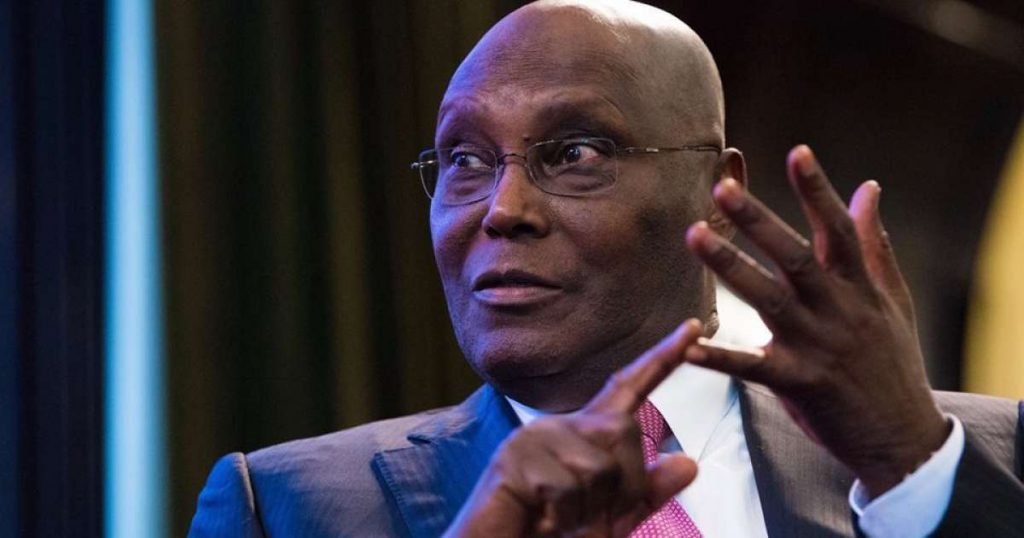Nigeria’s former vice-president, Atiku Abubakar, has said he has “fears” for the country’s election next year as he attacked President Muhammadu Buhari for intransigence and wanting to cling on to power.
“The characters that are involved this time, as far as the leadership of this country is concerned, are different from 2015,” he said Monday evening.
Abubakar, 71, was vice-president under president Olusegun Obasanjo between 1999, when civilian rule was restored in Nigeria, and 2007.
Since then, he has been a presidential candidate three times for three different parties but failed to make it through the primaries.
He left the ruling Peoples Democratic Party (PDP) and joined the All Progressives Congress (APC) before the last elections in 2015 that saw Buhari become the first opposition candidate to unseat an incumbent president.
Atiku, as he is referred to across Nigeria, praised Buhari at the time but has since dumped the APC and rejoined the PDP, accusing it of failing to deliver on promises.
He said last December the APC had become as factionalised as its rivals amid a “draconian clampdown on all forms of democracy within the party and the government it produced”.
Abubakar on Monday described Jonathan, who was lauded for conceding defeat to Buhari, as “much more level-headed” and a “peaceful, very patriotic Nigerian”.
READ: Nineteen killed in fresh violence in Plateau
“We are dealing now with a retired general (Buhari), very uncompromising, also power-drunk who will not be ready to leave power without a fight — or at least those are some of my fears for the current elections,” he said.
Buhari, 75, is a no-nonsense former army general who headed a military government in the 1980s but ran a campaign four years ago calling himself a “converted democrat”.
He has been accused of ignoring the rule of law and using security services to silence perceived political opponents, as well as targeting opposition figures as part of his high-profile anti-corruption drive.
Questions have been raised about whether he is well enough to run for a second term at the February election, after he spent months undergoing treatment for an undisclosed illness in London last year.
Previous polls in Nigeria have been marked by extreme violence but last week Buhari assured visiting British Prime Minister Theresa May that he was “all out for free, fair and credible elections”.
Security will be a major issue, with Boko Haram Islamists still not defeated in the remote northeast, despite Buhari’s promises to end the nine-year insurgency that has killed at least 20,000 and displaced more than two million.
More than 1,500 people have also been killed since September last year in renewed clashes between farmers and herders in central states.
Atiku did not disclose how he would tackle Boko Haram, whose home state of Adamawa has been among the three most-affected by the violence and the humanitarian aftermath.
But he declared that “there must be something wrong somewhere” and vowed to investigate further.












